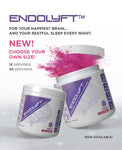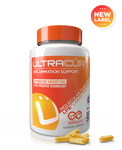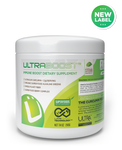The natural health world is abuzz with talk of chelation. Holistic doctors have used chelators for over 50 years to bind to metals in the body and promote their excretion.
This week’s podcast guest, Dr. John Spence, tells this story about a dentist he knows... and the dentist's dramatic story about his coronary artery disease. It was so bad 14 years ago that he couldn’t walk across the room without sitting down to catch his breath.
Doctors told the dentist that he needed a coronary artery bypass.
The dentist said, “There’s no way you’re going to do that to me.”
The doctors told him, “Well, you’re going to die if you don’t.”
The dentist said, “Well I might. But you’re not going to do that.”
So Dr. Spence’s dentist friend took action... got chelation therapy and more. Just took the bull by the horns. That was about 14 years ago.
This summer, this dentist rode his motorcycle to Dr. Spence’s office! No more breathlessness for him!
So is chelation helpful for heart disease or not? And first, what is it?
Just what is chelation?
Chelation comes from the Greek work for “claw,” which is chele. Think about a tiny molecular claw that binds metals like lead, mercury, iron, copper, and other toxins from the body. The claw is the chelator, and the process of removal is chelation.
Picture a claw grabbing for a prize and removing it in an arcade game.
Chelation is a recognized therapy for acute toxicity of metals. MD’s have prescribed chelators for iron and copper overload or for genetic conditions that lead to overload for years.

Heavy metals are a disaster for your health!
Hundreds of studies show that elevated levels of toxic metals lead to many health risks including:
- Heart disease
- Stroke
- Hypertension
- Congestive heart failure
- A-fib
- Dementia and Alzheimer’s
Heavy metals promote many types of dysfunctions:
- Oxidative stress
- Inflammation
- Endothelial dysfunction
- Immune dysfunction
- Mitochondrial dysfunction
- Coagulation disorders
- Reduced glutathione
- Reduced nitric oxide
- Dyslipidemia
- GI disorders
- Reduced heart rate variability
Lead exposure can wreak havoc on nearly every system in your body. It is especially dangerous for children, with their rapidly developing bodies. Lead can also trigger abdominal pain, behavior and mood changes, coma, delirium, irritability, lethargy, seizures, vomiting, and weakness.
But lead is just one of many heavy metals you may be exposed to.

About chelation and heart disease
There’s little evidence that chelation acts like an automatic “Drano” for the arteries.
However, that doesn’t mean it has no positive effects.
Take the TACT trial which was published in JAMA.
In it, patients with an existing history of heart attack who underwent chelation had a lowered event rate (total mortality, recurrent myocardial infarction/MI, stroke, coronary revascularization, or angina-related hospitalization).
Most of the study patients were also on conventional heart medications. Six fewer people died in the chelation group than in the placebo group.
Other studies were small. Some showed chelation to benefit and others did not.
So should YOU use IV chelation?
IV chelation is a serious commitment of time and resources. In those with a history of heart attack, 40 chelation treatments are standard.
The biggest benefit was for people with a history of heart attack who also had a diabetes diagnosis. If you’re in that group, IV chelation should definitely be considered.
It’s also a good idea to test for heavy metals.
Notably, the TACT trial did not test for metals before treatment.
Testing for heavy metals can be done with blood, hair, and urine.
A 2018 meta-study of 37 other studies comprising 350,000 people showed that heavy metals do pose an increased risk for heart disease and stroke, on a dose-dependent level. The greater your exposure, the greater your risk.
Daily ways to cleanse and detox metals naturally
You may be able to avoid IV chelation by proactively taking the following steps every day:
You may be able to avoid IV chelation by taking the following steps every day:
- Avoid metals in the first place (by filtering your water and drinking it from glass, for example, and living farther from industrial sites)
- Drink plenty of quality filtered water
- Make sure to move your bowels every day
- Eat a wide variety of organic, Paleo foods... especially garlic, onion, and broccoli. Unfortunately, toxins do lurk in our foods so eat a wide variety and not too much of any one or two foods.
- Get sunshine during the day and sleep at night
- Quit smoking (including e-cigarettes) – Smoking is a major source of metals
- Exercise and sweat!
- Refuse mercury (amalgam) fillings at the dentist. And if you remove mercury fillings, be sure to hire a dentist that uses safe protocols recommended by The International Academy of Oral Medicine and Toxicology.
There's also oral chelation, which is more fiscally viable and requires far less time. However, authorities such as Dr. Julian Whitaker say that oral chelators don't reach the bloodstream nearly as well as IV chelation, and so lack its effectiveness.
Supplements that aid heavy metal detox
- Oral EDTA supplement -- keeping Dr. Whitaker's statements in mind
- UltraBroc™ -- broccoli is backed by some very interesting studies in China’s most polluted cities
- UltraCür® -- curcumin has been studied for its detoxification effects against lead and cadmium.

Want to hear more from Dr. Spence, about his friend the dentist, who recovered from extreme heart disease after refusing surgery?
There are more stories where that one came from! And from a former conventional E.R. doctor, no less!
Find out what Dr. Spence is doing today to improve the awful mortality odds in wound care... and gain new hope and insight for your own health challenges.
Listen to Saturday's podcast now, and get a head start on your health goals for 2023!




